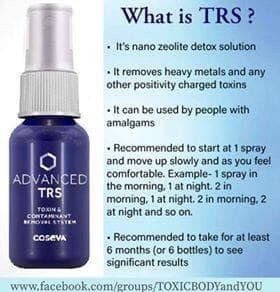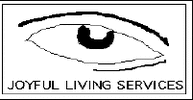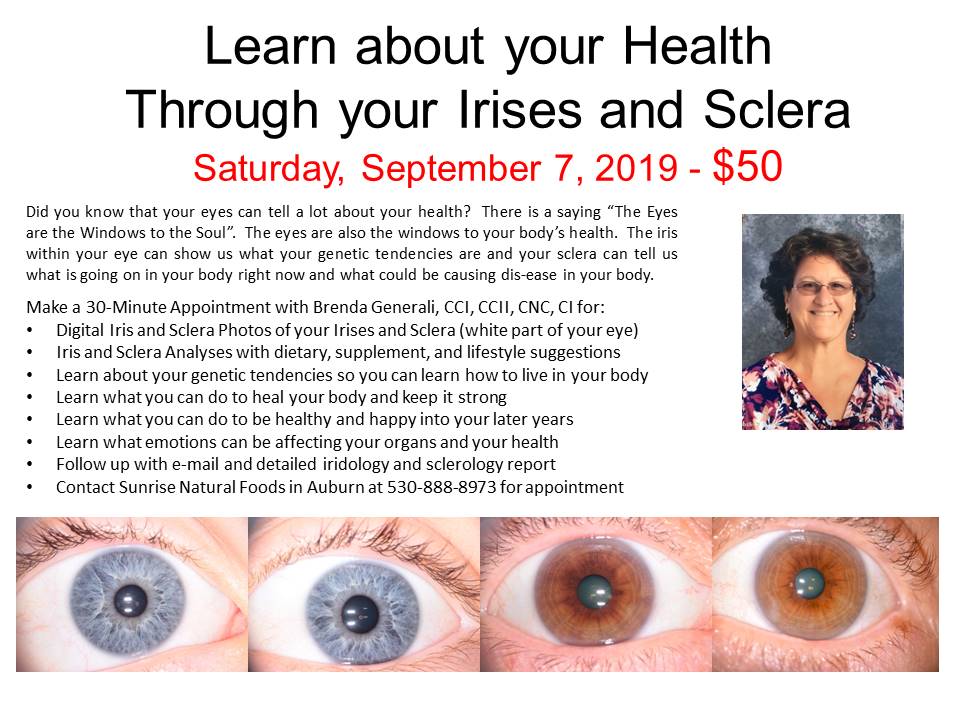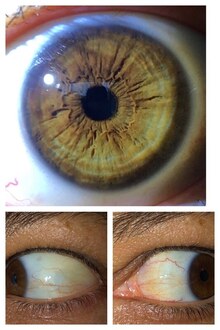
Most of us experience a constant bombardment of low-level toxins. Germs and other toxic substances are all around us - in air, food and water, on plants and pets, and even on the surfaces of our homes and in our own bodies. The internet is overflowing with information on toxins and countless programs and products that are touted to cleanse your body of them, but how
does your body remove toxins naturally and what are you options to detox for your health.
Your immune system protects against many infectious agents. Some, however, can be formidable and others that are fairly harmless in small numbers can breach the immune system's defenses when present in force.
You are constantly exposed to toxins, which is worse if you live near heavy pollution, pesticide spraying, eat poor quality food, drink unfiltered water, or live in a moldy house. Your body also produces toxic trash metabolites that must be cleared, which is worse if you have digestive problems, sinus problems, are under high stress, are fighting a bug, are recovering from surgery or an accident, do not sleep enough, or physically wear yourself out (including exercise).
A toxin can be anything that not only has no nutritional or other value to the body, but actually causes harm or costs the body valuable energy and resources just to get rid of it or store it in the tissues. There are two different types of toxins that affect the body:
Exogenous Toxins
Exogenous toxins are chemicals that are made outside of your body and can harm your cells if they are ingested, inhaled, or absorbed into your bloodstream through some other channel.
While it's unrealistic to live and work in an environment that's free of exogenous toxins, you should strive to minimize your exposure to the following most common exogenous toxins:
MSG and aspartame - both are especially toxic to your nerve cells
Recreational Drugs
Any over-the-counter or prescription drug that comes with a warning that use of the drug in question may lead to liver damage
Most personal care products, especially cosmetics that are applied around the mouth, which are easily swallowed in trace but potentially significant amounts
The exogenous toxins mentioned above may not be as harmful in one shot as other obvious toxins like carbon monoxide and volatile organic compounds, but the four groups mentioned above tend to be used regularly by large segments of the population, so they're definitely worth highlighting.
Endogenous Toxins
Endogenous toxins are toxins that are produced inside of your body. Some of these toxins are waste products from normal metabolic activities - carbon dioxide, urea, and lactic acid are examples of endogenous toxins that your body churns out by the second. Unless your health is severely compromised, your body is well equipped to eliminate these endogenous toxins from your system.
An often overlooked source of endogenous toxins is an unhealthy gut. Over time, a diet that's rich in highly refined foods, poor eating habits (lack of chewing is a big one), and emotional stress can lead to an unhealthy balance of microorganisms in your gastrointestinal tract, a state that's called intestinal dysbiosis.
Intestinal dysbiosis is accompanied by steady production of endogenous toxins by undesirable yeasts, fungi, bacteria, and in rare cases, even parasites. These toxins include various aldehydes, alcohols, indols, phenols, and skatols, just to name a few.
While some of these endogenous toxins are eliminated as gas, some make their way into your bloodstream by traveling through your intestinal walls, and once they make it into your bloodstream, they can get into your cells.
Preventing and Removing Toxins
The body's first line of defense is to prevent toxins from entering the body. The skin serves as a protective barrier. Bacteria can not penetrate intact skin, and the salt concentration in sweat creates a hostile environment for most bacteria. The parts of our mouth, lungs, digestive tract and other orifices such as eyes, nose, and ears that come in contact with the environment are protected by saliva, mucus, tears or minute hairs. Stomach acidity and friendly bacteria provide additional protection from things we ingest.
These passive defenses are very effective at prevention. More active responses to rid the body of unwelcome guests include coughing, sneezing, runny nose, vomiting and diarrhea, which help the body quickly expel unwanted substances. Elevated temperature helps kill invading microorganisms, and the digestive tract excels at differentiating between what to keep and what to expel as waste.
In general there are four primary toxin removal systems that must all be working in harmony with each other. These involve:
- The disposal of cellular waste products, especially lactic acid.
- The removal of larger waste products through your lymph (smaller waste products go into your veins and are exhaled or sent directly to your liver).
- The processing of toxins by your liver, most of which then go into bile and then into your digestive tract for final clearance (some are made water-soluble and go to your kidneys to be excreted in urine).
- The final clearance of waste products by your digestive tract.
Your gut: we all know that we get rid of most of our waste through our bowels. If your digestive system is not working properly, it can't get rid of unwanted waste and toxins properly. Our body empties many toxins into our excrement, but if it is sitting in the bowel too long (i.e. you are constipated) - it can get reabsorbed and go through our detox systems again - increasing their workload and making them less effective. For advice on nursing your gut back to health have a read of the right foods to eat. In addition, an overgrowth of the wrong types of bacteria or fungus in your gut will result in their harmful toxins entering your body, increasing your toxic load. If you are suffering from digestive problems it is not only your nutrient status and your comfort that it can be harming - poor gut health also impacts on your body's ability to detox. So this must be a first step in any program that aims to clean up the body.
Your kidneys and your 'waterworks': Many unwanted toxins are removed from the body in your urine. The best help that you can give this clearance pathway is to DRINK PLENTY OF SPRING WATER. Aim for 1 1/2 litres a day or 8 glasses. Remember however that many health foods contain water and these can also rehydrate you e.g. fruit and vegetables.
Your liver: This is where the really clever stuff happens, your blood enters the liver full of toxins and bacteria and leaves clean - that is if it is working properly. The unwanted pollutants are neutralised in the liver to make them less harmful to the body using a series of complicated chemical processes. Some of the chemicals are recycled and the rest are dumped into your excrement in a substance called bile. Your liver is also responsible for many other functions including digesting fats, storing vitamins and energy supplies plus more! Many of the recommendations below promote the function of the liver by supplying it with nutrients that it uses to ensure that the chemical processes we describe are working and that the production of bile is maximized - speeding up our cleansing process.
When your cells are working well and making energy properly they are fairly clean burning engines, making less trash. As cell function declines they start to pour a lot of black smoke out their exhaust, in the form of lactic acid and other inflammatory by-products. This changes the pH in the fluid around cells, stressing circulation to and from cells. Since you have 100 trillion cells, solving this problem or preventing it is a good idea. One key principle of detoxification is to make less cellular trash in the first place.
Good nutrition is essential to help the liver function properly. Foods that feed the liver include:
- Increase your intake of fruit and vegetables and try to aim for at least 30% raw. Especially good for the liver are: artichokes, garlic, onion, leeks, beetroot, radish, turnip, watercress, fennel, broccoli, cabbage, kale, brussel sprouts, apples and pears, apricots, grapes, berries, lemons, papaya, pineapple, avocado, cranberries, banana and watermelon. However, they are all health promoting and delicious!
- Take a good multivitamin and mineral supplement or a multivitamin and mineral formula designed for liver support. You are going to need tailor made support to keep your liver going and help it to process all this waste! The nutrients that you are especially looking for in a supplement to a minimum of 100% RNI include: Vitamin A, C, E, Selenium, Zinc, Copper, Iron, B Complex including Folic Acid, Magnesium.
- Ensure that you have enough healthy sources of protein in your diet. These include: eggs, lean meat, fish and beans and pulses, or try quinoa (it is like couscous but contains a loads of protein).
- Buy a pot of good quality lecithin granules and sprinkle them on your cereal or in yoghurt, on porridge or eat with fruit. These help your liver to break down fats and ease its overall burden1. They taste fine - in case you're worried!
- The herbal supplement 'milk thistle' is traditionally used to promote liver function2. When taking herbals it is best to do so with the advice of a healthcare professional.
There are so many areas that we can address to clean up our act and help your body deal with the toxins in our body. We all know that the results can only be to feel better and be healthier in the long term:
- Avoid caffeine, alcohol and smoking
- Avoid processed food
- Avoid refined or 'white' foods e.g. white bread, pasta, sugar, cakes and biscuits
- Avoid fried foods and any type of fats including butter, margarine and processed vegetable oils
- Lower exposure to environmental pollutants e.g. traffic fumes, chemical household and personal hygiene products and air fresheners
- Make sure you eat protein with every meal
- If you have digestive problems, address these urgently
- Check out your potential food intolerances
- Drink at least 1 1/2 litres of water a day
- Go organic where possible
- Take an appropriate multivitamin and mineral formula
- Add lecithin to your cereal at breakfast
- Consider taking the herbal supplement 'milk thistle'
- Random fat sampling by the EPA shows that all Americans store fat-soluble toxins from common chemical exposures in their fat. This is a testament to the amount of pollution we face. Some of these like PCBs, which are proven to elevate in your blood as they are released from fat when you lose weight, can be quite toxic. You must be able to get toxins out of your system fully as you lose weight, otherwise your fat will simply not release them easily and you will struggle to lose weight past a certain point.
Join our TRS Facebook Group at:
https://www.facebook.com/stonesdetox to learn more about TRS and read real life testimonials on how it's helping people with their health concerns.
To safely and effectively detox these positively charged toxins and heavy metals, look into TRS at https://iridology.mycoseva.com/






 RSS Feed
RSS Feed



